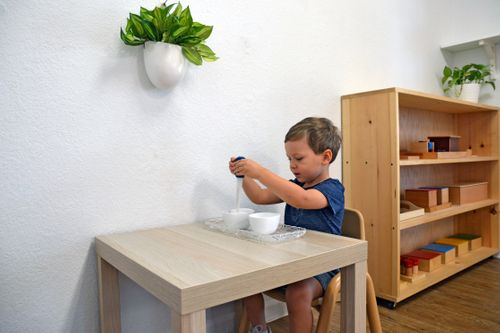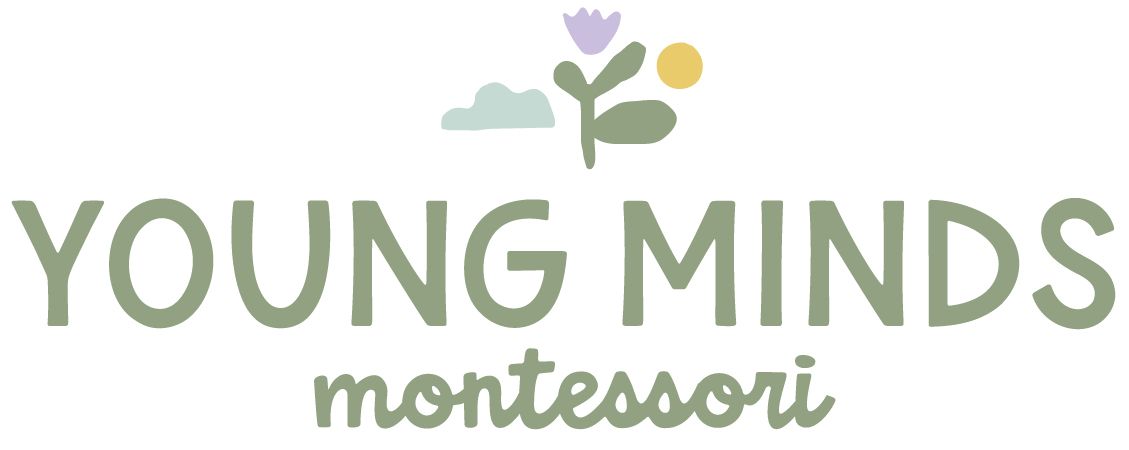Pre-Primary (18mo - 3 years)

Young Minds Toddler Program
Our toddler classrooms have children between the ages of 18 months to 3 years.
The Toddler Community is a prepared environment, which provides for the physical, psychological, and developmental needs of a child less than three years of age. The environment created allows for freedom of movement and the growth of independence. The child is free to act and to develop according to his/her own inner direction guided by the nurturing hands of a loving directress.
The materials used give the child an opportunity to learn through movement. Emphasis is placed on motor, sensorial, language and social development. The environment is arranged specifically for and corresponds to the growing developmental needs of the child. Everything in the environment either teaches skill or develops concentration.
“The first educational influence upon a child should have as its object the guidance of the child along the way of independence. No one can be free if he is not independent; therefore, to attain this independence, the active manifestations of personal liberty must be guided from earliest infancy.” (Maria Montessori) For a child 18 months to 36 months, great work lies in his/her ability to develop impulse and self-control.
The toddler classes are guided by nurturing, knowledgeable teachers who exhibit the skills and abilities to guide toddlers between the ages of 18 months-3 years.
MORE ABOUT MONTESSORI TODDLERS
Children develop more rapidly than at any other time during the first 3 years of life. They absorb vast amounts of information through observation and experiences from their environment and relationships. These years lay the foundation for later learning—and the stronger the foundation, the more the child will be able to build upon it.
The Montessori method offers a curriculum that emerges from each child’s unique skills and interests. Based on daily observations, teachers introduce new materials and activities that pique curiosity and stimulate learning. Learning objectives for your child at this age include developing skills such as language, concentration, problem solving, visual discrimination, and physical coordination.
The routines of everyday living are the foundation of the toddler program. Activities promote independence, order, coordination, and concentration, as well as support social, emotional, physical, and cognitive development. These learning activities include:
- Self-care: washing, dressing, toileting, and eating, according to each child’s individual capacity
- Care of the environment: cleaning, food preparation and food service; and plant care.
- Large-motor activities (indoors and out): walking, climbing, running, jumping, balancing, climbing steps, and more
- Fine-motor skills: reaching, grasping, picking up objects, transferring objects, using tools and utensils, doing art work
- Language: naming objects, describing actions and intentions, discussing pictures, conversation, music, and singing
- Social skills: developing manners through interactions with peers, teachers, and adult-led small group games
Toilet Training is a major developmental milestone during the toddler years. By collaborating with parents, our teachers look for the signs that indicate they are ready to begin toilet training. Our bathrooms are equipped with toddler size toilets, which allow for a comfortable transition to their newly learned independence.
